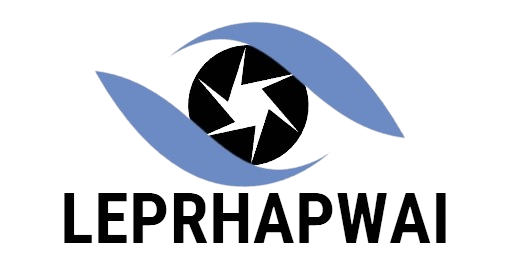In the modern world, technology is playing an increasingly important role in education. Learning management systems (LMS) are invaluable in facilitating access to education, providing an ever-growing range of resources, and facilitating collaboration between students and teachers. As technology innovation continues to accelerate, LMS have become a cornerstone of modern education and now play a fundamental role in the learning process. This article will explore the many ways in which LMS contribute to the modern educational setting, and how they can be used to improve student learning outcomes.
1. Understanding Learning Management Systems
Learning Management Systems (LMS) are robust platforms designed to enhance the learning experience and streamline educational processes. With the ever-growing demand for online learning, it is crucial to comprehend the fundamental aspects of LMSs. Here are two key points that will help you grasp the essence of these remarkable systems:
1. Features of LMS: LMSs come equipped with a range of features that can revolutionize the way education is delivered. These include:
– Content management: LMSs allow for easy organization and delivery of online learning materials, such as videos, documents, and assessments.
– Communication tools: LMSs provide built-in communication channels, enabling seamless interactions between instructors and learners. This allows for discussions, clarification of doubts, and fostering a sense of community within the virtual classroom.
– Progress tracking: LMSs offer sophisticated analytics and reporting tools, allowing both learners and instructors to monitor progress and performance. This not only provides insights into individual achievements but also aids in identifying areas for improvement.
2. Benefits of using LMS: The advantages of utilizing LMSs are vast and varied. Let’s explore a few noteworthy benefits:
– Flexibility and accessibility: LMSs enable learners to access educational materials anytime, anywhere. Whether it’s a student juggling multiple commitments or an employee seeking professional development, LMSs provide the flexibility needed to fit learning into a busy schedule.
– Personalized learning paths: LMSs often incorporate adaptive learning technologies, allowing learners to progress at their own pace. By tailoring the learning experience to individual needs, LMSs ensure optimal engagement and knowledge retention.
– Cost efficiency: Adopting an LMS eliminates the need for physical classrooms, printed materials, and travel expenses. This results in substantial cost savings for educational institutions and organizations alike.
Understanding the core features and benefits of Learning Management Systems lays the foundation for harnessing their potential to create engaging and effective virtual learning environments. Stay tuned for future posts where we delve deeper into specific aspects of LMSs and explore how they can revolutionize education as we know it.
2. Advantages of Using Learning Management Systems
Learning Management Systems (LMS) offer a multitude of advantages, making them an indispensable tool for both educators and learners. Let’s take a closer look at some of the key benefits:
Streamlined Learning Process: LMS platforms provide a centralized space where course materials, resources, and assessments are organized and easily accessible. This streamlines the learning process by eliminating the need for physical paperwork, allowing students to access course content at their convenience. Additionally, LMS features such as discussion forums and messaging tools foster collaboration and communication between learners and instructors.
Enhanced Learning Experience: With LMS, educators can incorporate various multimedia elements into their courses, including videos, audio clips, and interactive quizzes, that cater to different learning styles. This enhances the overall learning experience, making it more engaging and effective. LMS also allows for personalized learning as instructors can tailor content based on individual needs and track progress through customizable dashboards. Furthermore, LMS systems often include features like automated grading, providing prompt feedback to learners and optimizing the assessment process.
3. Challenges of Adopting Learning Management Systems
Integration with existing systems: One of the major challenges faced by organizations when adopting learning management systems (LMS) is integrating them with their existing systems. Whether it is an HR database, e-commerce platform, or internal communication tools, ensuring a smooth integration can be a complex task. The LMS needs to seamlessly integrate with these systems to allow for data synchronization, user management, and content sharing. This requires extensive technical knowledge and expertise to ensure compatibility, avoiding any disruptions to the workflow. Additionally, organizations need to consider the cost and time invested in customizing the LMS to meet their specific needs and integrate it with the existing infrastructure.
User resistance and training: Another significant challenge in adopting LMS is user resistance and the need for comprehensive training. Many employees may be familiar with traditional learning methods and may resist the transition to an online platform. This can lead to a lack of engagement, limited adoption, and hinder the success of the LMS implementation. To address this challenge, organizations must invest in user training programs that educate employees on how to effectively use the LMS and promote its benefits. Providing clear instructions, tutorials, and ongoing support can help alleviate any fears or concerns and encourage user participation. Moreover, organizations should prioritize usability in the design of the LMS interface, making it intuitive and user-friendly to enhance user experience and facilitate the adoption process.
4. Ways Learning Management Systems Support Modern Education
Learning Management Systems (LMS) have become an indispensable tool in modern education, enhancing the learning experience for both students and educators. With their advanced features and functionalities, LMS platforms revolutionize the way education is delivered and accessed. Here are some key ways in which Learning Management Systems support modern education:
1. Streamlining Course Management: LMS platforms allow educators to effortlessly organize and manage their courses. From creating interactive lesson plans to scheduling assignments, LMS platforms provide a centralized hub for all course materials. With features like grade book organization and automated grading, LMS platforms simplify the administrative tasks for teachers, allowing them to focus more on teaching and interacting with students.
2. Facilitating Collaborative Learning: Learning Management Systems promote collaboration among students and educators. Discussion boards and messaging systems enable seamless communication and knowledge sharing outside of the classroom. LMS platforms also support group projects and virtual classrooms, fostering a sense of community and teamwork. Additionally, LMS platforms offer tools for interactive learning, such as quizzes, polls, and video conferencing, which engage students in the learning process and encourage active participation.
5. Measuring the Effectiveness of Learning Management Systems
When it comes to evaluating the effectiveness of a Learning Management System (LMS), there are various key metrics that can be used to gauge its impact on learners and organizations alike. By assessing these metrics, LMS administrators can gain valuable insights into the system’s performance, identify areas for improvement, and make data-driven decisions to enhance the learning experience. Here are some important factors to consider:
- User Engagement: One of the primary indicators of an effective LMS is the level of user engagement it generates. This can be measured by monitoring the frequency and duration of user logins, the number of active participants in discussion forums and social learning activities, as well as the completion rates of assigned tasks and assessments. Higher user engagement is often correlated with increased knowledge retention and improved learning outcomes.
- Learning Progress: Monitoring the progress of individual learners is essential in measuring the effectiveness of an LMS. This can be achieved by tracking learners’ completion rates, their scores on quizzes and exams, as well as their ability to apply newly acquired knowledge in real-world scenarios. Additionally, the LMS should provide opportunities for learners to receive feedback and reflect on their learning journey, allowing them to track their own progress and make necessary adjustments to their study habits.
An effective Learning Management System should not only deliver content efficiently but also facilitate active learner participation and continuous improvement. By assessing user engagement and learning progress, administrators can gain valuable insights into the effectiveness of the LMS and make data-driven decisions to optimize the learning experience for all users.
6. Applications of Learning Management Systems in Different Levels of Education
Learning Management Systems (LMS) have revolutionized education, providing an array of benefits across various levels of learning. From kindergarten to university, LMS can enhance the educational experience, streamline administrative tasks, and foster collaboration among students and teachers.
Primary School
In primary school, LMS can offer an interactive platform for young learners to explore various subjects. With engaging multimedia content, students can grasp concepts more effectively. The system can also facilitate communication between teachers and parents, ensuring open feedback and progress monitoring for each child. Furthermore, an LMS can promote teamwork among students by facilitating group projects and enabling the sharing of knowledge and resources.
Secondary School
As students progress to secondary school, an LMS becomes even more valuable. Alongside the features mentioned for primary school, LMS can provide a comprehensive way to access class materials, assignments, and support resources. It allows students to manage their time effectively by providing reminders for deadlines and scheduling study sessions. The system may also integrate online assessments and quizzes, offering immediate feedback and enabling self-paced learning for students. Additionally, LMS can foster healthy competition and collaboration by enabling peer-to-peer discussions and providing a platform for sharing supplementary learning materials.
7. Finding the Right Learning Management System for Your Needs
When it comes to finding the right learning management system (LMS) for your needs, there are several key factors to consider. It’s important to assess your requirements and ensure that the LMS you choose aligns with your specific goals and objectives. Here are some essential tips to help you navigate the process:
- Identify your learning objectives: Before beginning your search, clearly outline your learning objectives and what you hope to achieve with the LMS. This will help you identify the functionalities and features that are crucial for your organization.
- Evaluate scalability: Consider the future growth and scalability of your organization. Look for an LMS that can accommodate your expanding needs and easily adapt to any changes in the future.
- Assess user interface: User-friendly navigation and a visually appealing interface are essential for an engaging learning experience. Test out the usability and interface of different LMS options to ensure they are intuitive and visually appealing.
Once you have assessed the aforementioned factors, it’s time to compare different LMS solutions, considering their pricing, customer reviews, and available support. Take advantage of demos and free trials offered by various vendors to get a first-hand experience of how the LMS works. By carefully considering your requirements and taking the time to evaluate different options, you can find the perfect LMS that meets the unique needs of your organization.
In the 21st century, Learning Management Systems have become an invaluable asset to any classroom– online or offline. With creative tools and beneficial learning opportunities, these systems are helping to revolutionize education and the way we learn.











